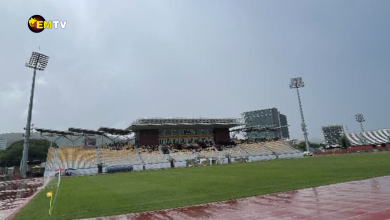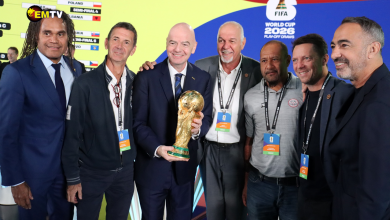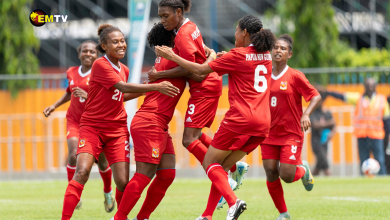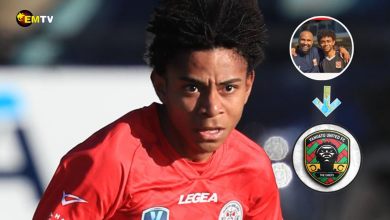Russian and FIFA officials on Thursday marked 100 days to the kick-off of the 2017 Confederations Cup.
Soccer players and guests took part in celebrations at the St Petersburg’s Zenit Arena stadium where an emblem for the soccer tournament was unveiled.
Former Brazilian soccer defender and FIFA Confederations Cup winner Cafu was there to display the trophy for the games, which kicks off on June 17th.
Russian national team midfielder, Alexey Smertin, and Cafu performed ball tricks, while Russian mascot Zabivaka wolf posed for photographs.
FIFA Secretary General, Fatma Samoura, said she was confident the games would attract fans from across Russian and abroad.
Asked about Russia hosting the games, Samoura said a fair bidding process had taken place.
“We see no reason to take away the World Cup from Russia. And today’s events demonstrate how strongly committed the authorities and FIFA and football fans are towards staging the best Confederations Cup and the better World Cup ever.”
Russia’s bid for 2018 World Cup came under scrutiny in 2015 after an FBI investigation into bribery and corruption at FIFA. The country has denied any wrongdoing.
The Chief executive for 2017 Confederations Cup and 2018 World Cup in Russia, Alexei Sorokin, said the sporting world had welcomed Russia’s hosting of the games.
“(One should not) mix up calls by individual minor politicians in certain countries with the attitude of the world of soccer,” “We see powerful enthusiasm from the world of soccer, from the soccer community about holding the World Cup in our country.”
Zenit Arena in St Petersburg is scheduled to host the opening match of the tournament where Russia will play against New Zealand. On June 22 the stadium will witness Cameroon playing against Australia, on June 24 New Zealand will play against World Champions Portugal.
The final game on July 2 is also scheduled to be held in St Petersburg. The Zenit Arena is also scheduled to host one of the World Cup semi-finals as well as six other matches in the tournament. The construction of the 68,000-seat stadium in St. Petersburg, one of the twelve 2018 World Cup venues, experienced problems since its beginning in 2007. According to Russian agency Tass the cost for works grew six-fold than the proposed 100 million euro.






